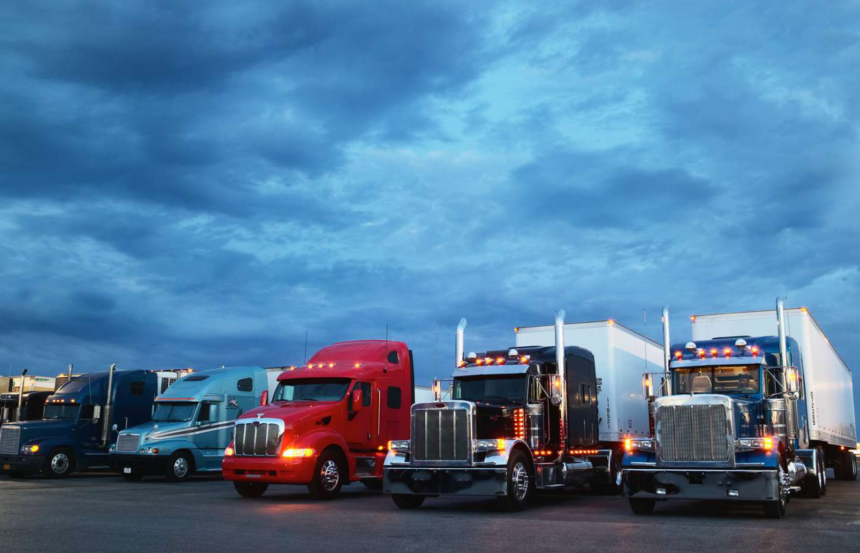If you’re part of the trucking industry, you know cash flow can be a bit of a rollercoaster. Expenses like fuel, repairs, and driver wages are relentless, but payments from clients? Well, they can take their sweet time to arrive. This is where factoring comes into play.
So, what is factoring, and how can it help your trucking business? In simple terms, factoring is a financial tool that allows you to get paid faster. It’s not a loan, and you don’t need to wait 30, 60, or even 90 days for your clients to settle their invoices. Instead, you can convert those outstanding invoices into immediate cash.
What is Factoring?
Factoring for trucking companies, also known as invoice factoring, is a process where a trucking company sells its unpaid invoices to a factoring company at a discount. The factoring company then advances the majority of the invoice value upfront—often around 85-90%. Once your client pays the invoice in full, the factoring company releases the remaining balance, minus their fees.
You’re essentially getting paid right away, without having to wait for your clients. The factoring company takes on the risk of waiting for payment, which can be a huge relief for trucking companies that rely on steady cash flow to keep things moving.
Why Do Trucking Companies Need Factoring?
In the trucking industry, cash is king. Every day, you’re faced with unavoidable expenses like fuel, maintenance, tolls, and driver wages. Waiting for clients to pay their invoices can create a real cash crunch, slowing down your operations or making it hard to cover these costs on time.
Factoring bridges that gap, providing you with the cash you need to keep your trucks on the road, pay your drivers, and cover other operating expenses. It gives you the freedom to run your business without stressing about delayed payments. But there’s more—let’s talk about some key benefits of factoring for trucking companies.
How Factoring Works Step by Step
Curious about how factoring actually plays out? Let’s break it down step by step:
- Submit Invoices to a Factoring Company – You start by sending your outstanding invoices to a factoring company. These are the invoices that haven’t been paid yet by your clients.
- Receive an Advance – The factoring company reviews the invoices and offers you an upfront cash advance. Typically, this is 85-90% of the invoice value, so you can get the funds you need immediately.
- Clients Pay the Factoring Company – Once the invoice is due, your client pays the factoring company directly, instead of paying you.
- Get the Remaining Balance – After your client pays the full invoice, the factoring company gives you the remaining balance, minus their service fee.
It’s really that simple. No chasing down late payments, no stress. You get the cash flow to keep things running smoothly while the factoring company takes care of the rest.
Is Factoring a Loan?
This is an important distinction: factoring is not a loan. With a loan, you’re borrowing money and are obligated to pay it back, usually with interest. Factoring, on the other hand, is simply selling your invoices. There’s no debt, no repayment schedules, and no interest piling up.
Because you’re selling a financial asset (your invoice), you don’t owe the factoring company anything. The only thing they take is their fee, which is usually a small percentage of the invoice amount.
How Much Does Factoring Cost?
The cost of factoring can vary based on several factors, including the volume of invoices you’re factoring and how long your clients take to pay. Typically, factoring fees range from 1% to 5% of the invoice amount. The faster your clients pay, the lower the fee. It’s a small price to pay for having immediate access to your cash.
If your company is growing or you’re dealing with larger contracts, the cost of factoring is often outweighed by the benefit of steady cash flow. Being able to access cash quickly means you can take on more work, grow your fleet, or invest in better equipment.
Who Handles Collections?
Another benefit of factoring is that the factoring company takes on the responsibility of collecting payments. They handle all communications with your clients regarding payment, so you don’t have to spend time following up on late invoices.
That being said, it’s always important to work with a reputable factoring company that treats your clients professionally. You don’t want your customers feeling like they’re being hounded by aggressive collectors.
When is Factoring a Good Idea for Your Trucking Business?
Factoring isn’t the right fit for every situation, but it can be a game-changer for trucking companies that face frequent cash flow gaps. Consider factoring if:
- You’re regularly waiting 30-90 days for client payments
- You struggle to cover operating expenses while waiting for invoices to be paid
- Your business is growing quickly, and you need cash to keep up with demand
- You don’t want to take on debt or deal with loan interest
Factoring is a flexible solution that grows with your business. The more invoices you have, the more cash you can access quickly. It’s a simple and straightforward way to manage your trucking company’s finances without getting tangled up in debt.
Time to Keep the Wheels Turning
Factoring is like giving your business a jump-start every time your cash flow stalls. Instead of waiting on clients to pay their invoices, you can take control of your finances and keep your trucking company moving full speed ahead.
For trucking businesses that need quick, reliable access to cash, factoring can be a powerful tool. It eliminates the waiting game, giving you the freedom to focus on what really matters—keeping your trucks on the road and growing your business.














